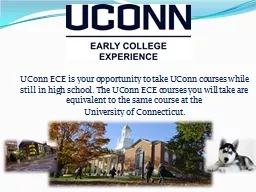PPT-Preliminary courses
Author : mitsue-stanley | Published Date : 2017-12-09
Webinar Preliminary courses The courses are created for education support students only The Preliminary courses are Business Management and Enterprise English Food
Presentation Embed Code
Download Presentation
Download Presentation The PPT/PDF document "Preliminary courses" is the property of its rightful owner. Permission is granted to download and print the materials on this website for personal, non-commercial use only, and to display it on your personal computer provided you do not modify the materials and that you retain all copyright notices contained in the materials. By downloading content from our website, you accept the terms of this agreement.
Preliminary courses: Transcript
Download Rules Of Document
"Preliminary courses"The content belongs to its owner. You may download and print it for personal use, without modification, and keep all copyright notices. By downloading, you agree to these terms.
Related Documents














